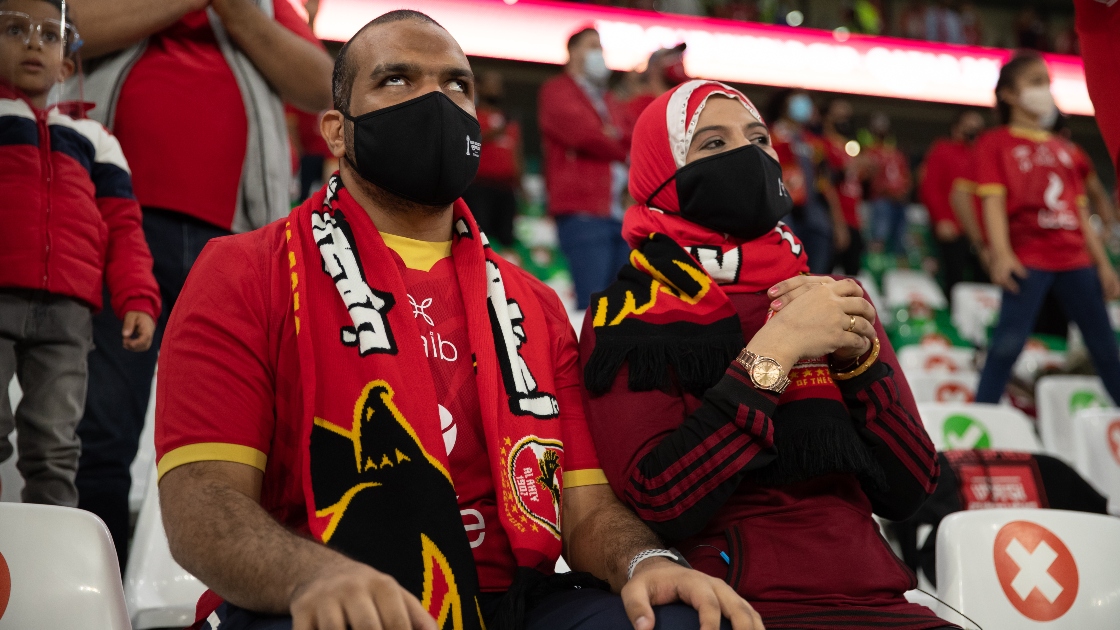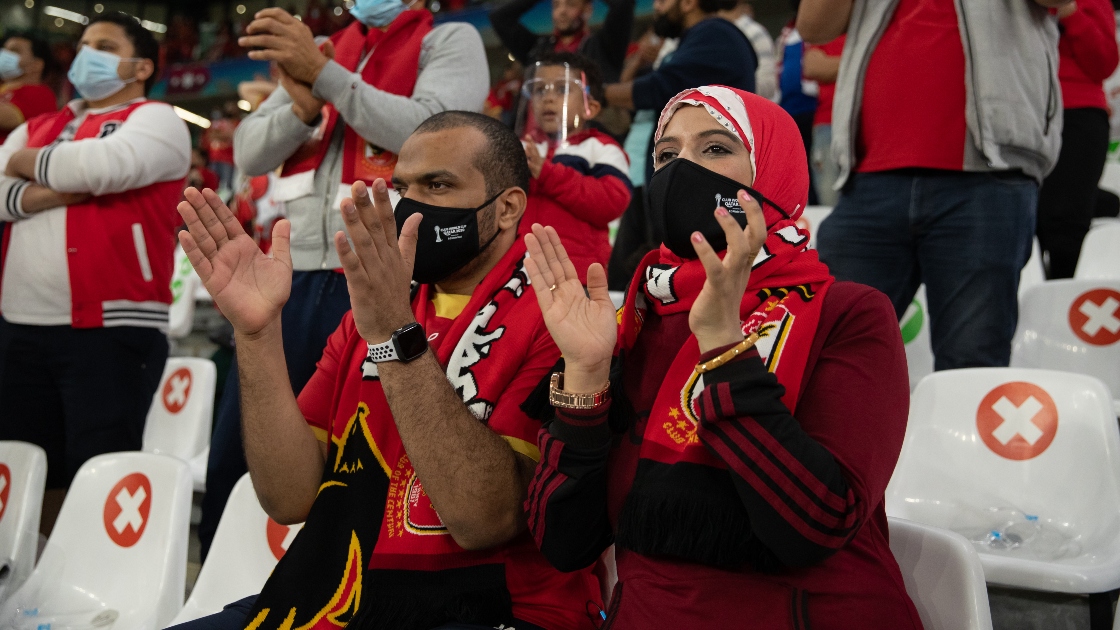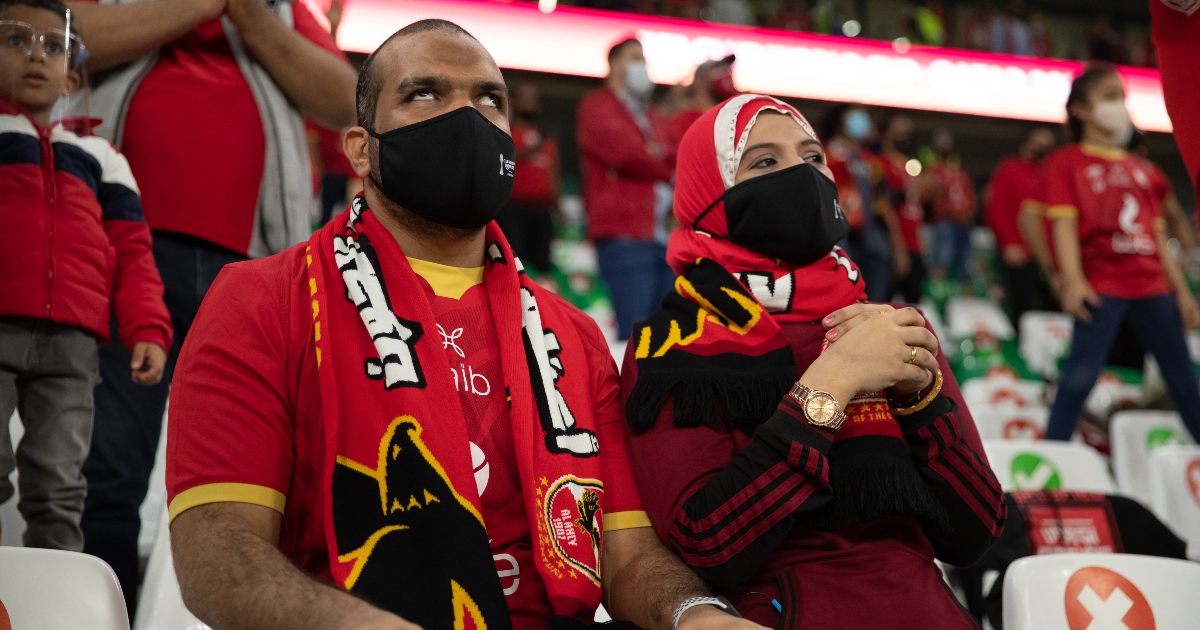

Ikrami Ahmad has been a supporter of Egyptian giants Al Ahly SC for as long as he can remember. When he was growing up in Menoufiya, 80km from Cairo, the Red Devils boasted a golden generation of talent – including Mohamed Aboutrika, widely regarded as one of the greatest African players of all time. They also won a bucket load of honours, including several CAF Champions League titles.
Over the years, Ikrami has developed a deep love for the game – and that passion has not been hindered by the fact he is blind. Having been born with a visual disability, Ikrami has lived his entire life relying on auditory cues to enjoy the world’s most popular sport.
“Most people are amazed to hear that a blind fan can enjoy football. But what they don’t know is that having the game come to life in your imagination allows me to enjoy the game even more than a sighted person. This is exactly why there are so many blind football fans,” said Ikrami, as he made his way to Education City Stadium to watch Al Ahly take on Al Duhail SC in the FIFA Club World Cup Qatar 2020™.
Until this tournament, 31-year-old Ikrami had never attended an Al Ahly match. He has, though, attended plenty of live games in the past – including during the last edition of the FIFA Club World Cup, which was also held in Qatar, and the FIFA World Cup in Russia. Like millions of blind fans, Ikrami relies on a companion to describe the action taking place in the stadium – including the tactics, formations and even the banners in the stands.

For the match at Education City, Ikrami was joined by his wife, Eman, as they watched Al Ahly defeat the host nation league champions by a single goal. They were part of the socially distanced crowd which was limited in order to prevent the spread of COVID-19 – in line with Qatar’s public health guidelines.
Ikrami, a father of two, said: “Even though Eman might not be the biggest football fan, she does live with me on a day-to-day basis, and therefore knows exactly how to describe what’s going on in the stadium in a way that communicates the match and all its excitement clearly. Her words paint pictures in my mind of the beautiful game.”
He continued: “Being among the fans, feeling their excitement, their reactions and objections to every decision, the way they scream out of frustration or joy, also helps me to know exactly what is happening on the pitch.”
With under two years to go until Qatar hosts the first FIFA World Cup™ in the Middle East and Arab world, tremendous efforts are underway to ensure the accessibility of tournament venues, including stadiums and fan zones. The Accessibility Forum, set up by the Supreme Committee for Delivery & Legacy (SC), brings together members of the disability community to provide user testing and feedback on how accessible the fan experience will be, ranging from physical to digital disability.

“From the beginning, we always wanted to host a tournament that would be accessible to all, regardless of their disability,” said Khaled Al Suwaidi, Stakeholder Relations Senior Manager at the SC. “We believe that everyone has the right to access spaces and content, something that is compounded when we’re talking about the world’s most important football tournament, watched by billions around the world.”
When not enjoying football, Ikrami works as an activity coordinator at the Qatar Social and Cultural Club for the Blind, an organisation tasked with advocating for greater accessibility for the blind and visually impaired in Qatar. The centre has also worked closely with the SC to ensure the World Cup provides measures designed specifically to help the visually impaired. For Ikrami, his work is intrinsically linked to football, which he sees as an important part of the social fabric of the country.
He said: “Football is a beautiful sport. I love it because of the number of ups and downs it has in just a matter of 90 minutes. I love the sport because of the deep connection fans have with their clubs and players. The game has become such an integral part of people’s cultures. Whether it’s local or international football, it’s a game that’s a part of who we all are.”

